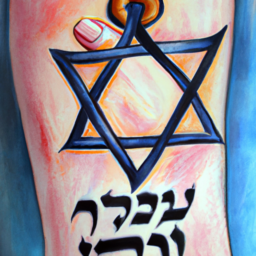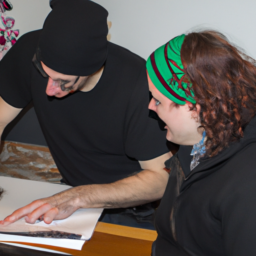“Hebrew Tattoo Ideas for Personal Reflection and Inspiration”
The Evolution of Hebrew Tattoos
Hebrew tattoos have surged in popularity in recent years, offering a unique blend of aesthetics, personal symbolism, and depth of meaning. They are more than just an art form; they are a tool for individual self-expression, carrying a piece of history, culture, and identity on one’s skin. Embodying the beautiful complex scripts of an ancient language, these tattoos often communicate profound messages and sentiments, resonating with individuals even beyond the Jewish community.
Lesser known to many, Hebrew is more than a language; it’s filled with philosophical and cultural nuances that make each word, each phrase, each script, volatile in its own right. Interest in these tattoos reflects not just a significant trend in the body art industry but also a deeper exploration of one’s spirituality, values, and personal journey.
Hebrew Languages and Its Ritualistic Past
The Hebrew language, stemming back to the biblical times, continues to be venerated for its profound depth and philosophical significance. It’s bound intrinsically with the Jewish faith and tradition, serving as a medium for religious rites and ceremonies. The language is so deeply religious that many, even outside of Judaism, have found profound connections with its scriptures, embodying them into evocative tattoo designs.
Even the scripts, from the ancient Paleo-Hebrew to the flowing lines of modern Hebrew calligraphy, carry unique significance. They tie back to narratives rooted in Jewish history, filled with struggle, perseverance, divinity, and wisdom. Hebrew scripts bear an extraordinary mix of culture, history, and aesthetics, making their translations into tattoos truly personalized and meaningful.
These translations of ancient language and scripts on skin are not just a fad; they are a symbol of identity – of a story, a belief or a testament of faith. They are embodiments of the depth, beauty and compelling narratives that the Hebrew language offers.
Tattooing Hebrew Phrases and Their Significance
The beauty of Hebrew tattoos lies not only in their striking aesthetics but also in the profound meanings they carry. In the world of Hebrew tattoos, common phrases form a significant part of the designs, primarily due to the depth of meaning they can convey.
אהבה (Love)
A popular Hebrew tattoo, for example, is “אהבה,” the Hebrew word for love. This single word tattoo invokes a strong feeling of deep affection or care. When inked on the skin, ‘אהבה’ serves as a powerful symbol and gentle reminder of one’s commitment to love in all things. It connects to the heart’s basic human drive to love and feel loved in return.
אמונה (Faith)
Another commonly used Hebrew phrase in tattooing is “אמונה,” translating to faith. The tattoo represents a person’s belief or trust in something or someone, often related to religious or spiritual dimensions. It holds a deeper philosophical meaning, symbolising the person’s reliance on a higher power, reminding them of their belief system, and expressing their spiritual journey.
Symbolic Hebrew Icons
In addition to phrases, Hebrew symbols also hold immense significance when used as tattoos. These not only represent the rich cultural heritage of Judaism but also serve as potent symbols of faith and identity.
Star of David
The Star of David, known in Hebrew as ‘Magen David,’ is one of the most recognized symbols worldwide. This six-pointed geometric star represents Jewish identity and Judaism. As a tattoo, the Star of David is a potent emblem of Jewish heritage and pride.
Menorah
Another popular Hebrew icon for tattoos is the Menorah, a seven-branched Lampstand from the Temple in Jerusalem. This symbol is traditionally used in the celebration of Hanukkah, a Jewish festival. It symbolizes light, wisdom, and divine inspiration. The Menorah tattoo serves as a beacon of light in the darkness, reminding the recipients of wisdom, knowledge, truth, and inspiration.
Whether choosing a Hebrew phrase or symbol for a tattoo, the depth and beauty of the Hebrew language ensure that it carries more than just sleek aesthetic value. Through such tattoos, individuals can capture their personal beliefs, reflecting their convictions and philosophy in a single etch of ink.
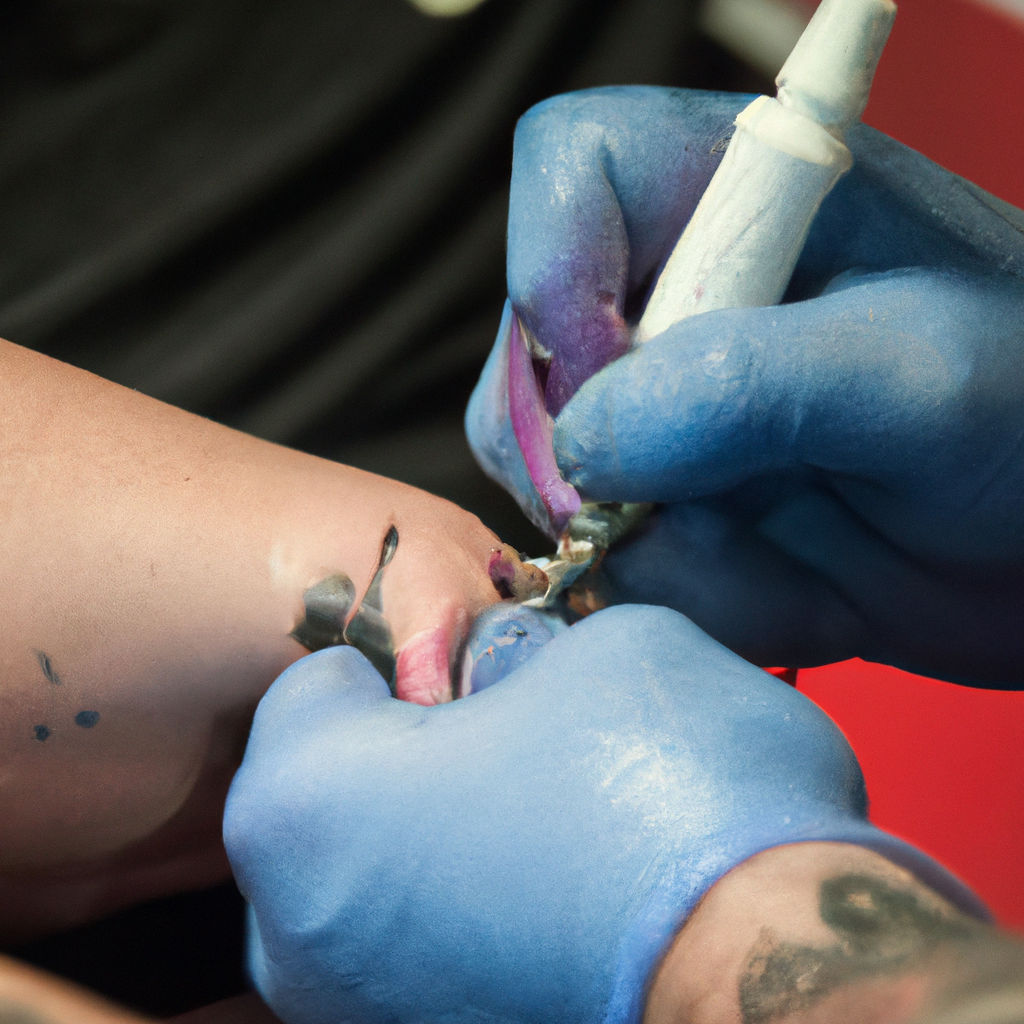
Embodying Spirituality: Hebrew Numerology and Verses Tattoos
When it comes to personal symbolism and deep spiritual roots, Hebrew tattoos often incorporate the fascinating concept of Gematria or Hebrew numerology. This centuries-old system assigns numerical value to each Hebrew letter, with the belief that words sharing the same values bear related meanings or are spiritually connected. Tattoos designed with these numerological principles can serve as potent talismans, touching base with ancient wisdom and spiritual insights.
For instance, the numerical value of “חי” (chai) is 18, symbolizing life and luck in Jewish tradition. A customer can opt to get this powerful symbol tattooed, intertwining their personal experience with time-honored spirituality and the universal goal of seeking a fortunate and meaningful life.
Hebrew Verse Tattoos: Timeless Wisdom on Skin
Moving on to another trend growing popular in Hebrew tattoos, we find the beautiful incorporation of verses from sacred Jewish texts like the Torah, Proverbs, and Psalms. These remarkable works offer profound insights and teachings, becoming ideal tattoo ideas for those seeking guidance, inspirational words, or timeless wisdom.
Consider this well-loved quote from Psalms: “יְהוָה רֹעִי, לֹא אֶחְסָר” – “The lord is my Shepherd; I shall not want” (Psalm 23:1). This profound statement can serve as a daily reminder of faith, resilience, and the unwavering support of one’s beliefs. For those seeking comfort during harsh times, a tattoo of this verse can serve an empowering symbol of spiritual strength and trust.
In conclusion, the depth and diversity of Hebrew numerology and verse tattoos give tattoo enthusiasts a rich tapestry to choose from. These designs encapsulate the alluring blend of personal meaning, religious depth, and the beauty of the Hebrew script — making them an inspiring choice for those wishing to make a powerful personal statement with their tattoos.
The Art of Hebrew Calligraphy for Tattoos
The intricate and ornate art form of Hebrew calligraphy is a pivotal aspect of designing meaningful and visually appealing Hebrew tattoos. This art form involves the skilled technique of writing the Hebrew script artistically to convey profound messages and symbolisms. Be it the fierce Lion of Judah designed with achieved precision or the soothing Shema Yisrael prayer fashioned in sophisticated script, each stroke in this calligraphic tattoo tells a story.
Hebrew calligraphy tattoos serve as a testament to the bearer’s journey, ideologies, or spiritual beliefs. This art form reaches beyond just aesthetics, incorporating a rich history and deep philosophical essence that make each tattoo unique and authentic.
This ancient writing technique beautifully captures the sense of rhythm, symmetry, and fluidity present in the Hebrew language. For instance, the Hebrew word for love, “אהבה,” once designed calligraphically, transcends its literal meaning and serves as an emblem of passion, connection, and unity that is evident in its aesthetic constitution.
The appeal of such tattoos lies not just in their visual attractiveness, but also in the manifest strength, resilience, and wisdom they convey.
Case Studies: Stories Behind Hebrew Tattoos
The decision to get a Hebrew tattoo often extends beyond surface-level design selections. Each tattoo bears its unique tale, unfolding facets of individual journeys and experiences. One such story is of a woman who engraved the Hebrew script of “אמונה” (Faith), representing her triumph over personal hardships and her renewed belief in the beauty of life.
Another example involves a man who chose the Kabbalistic Tree of Life symbol for his tattoo, symbolizing his journey of spiritual enlightenment and personal growth. He decided to implement this intricate design after studying Kabbalah and resonating with its teachings, using it as a compass in his life.
To illustrate the depth of Hebrew calligraphic tattoos further, consider the case of a devoted practitioner of Judaism, who had verses from Torah etched on his arm. These verses, which served as guiding principles in his life, were rendered artistically via Hebrew calligraphy to represent his connection with his faith.
These examples effectively underline the profound significance that Hebrew tattoos hold for their bearers, making them more than just a trend but a powerful mode of personal expression and a deeply emotional and spiritual journey.
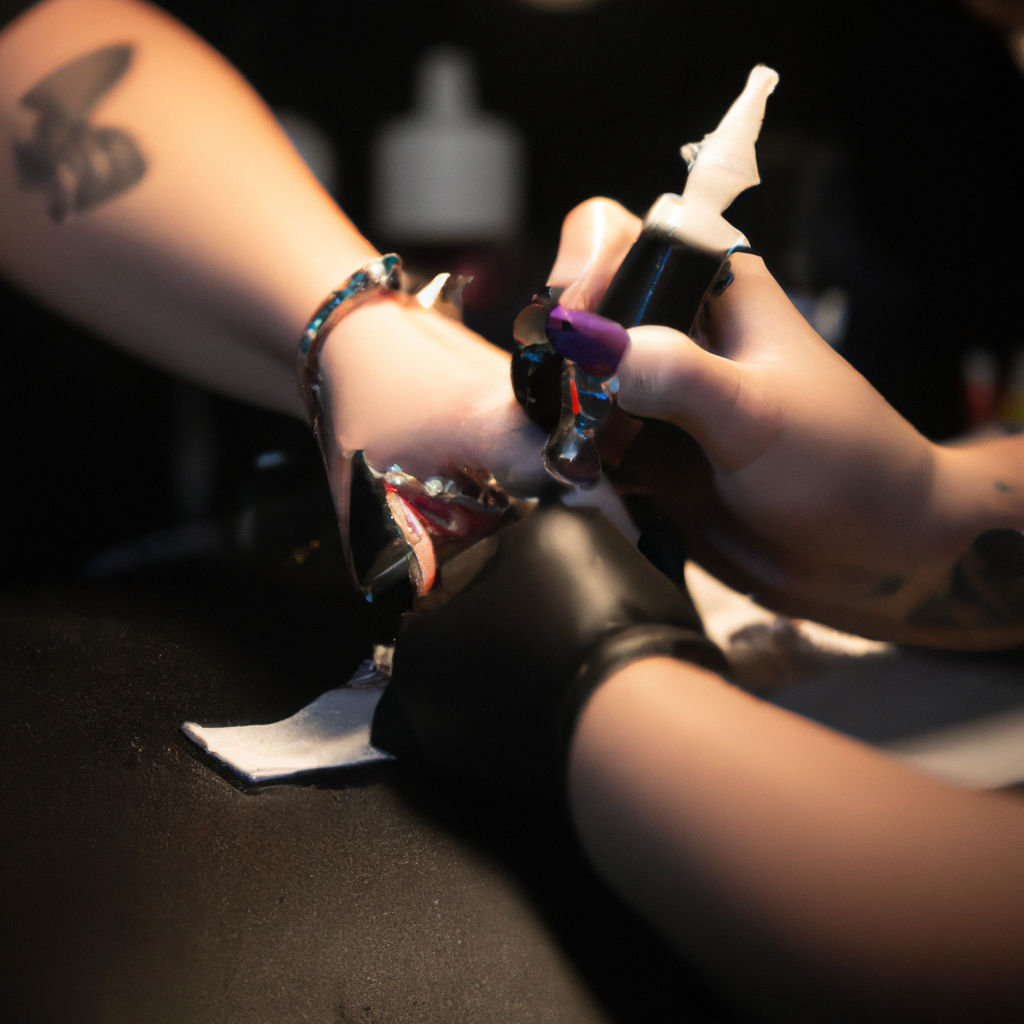
Legal and Ethical Considerations for Hebrew Tattoos
In the exciting realm of Hebrew tattoos, it is critical to acknowledge and discuss the potential issues surrounding the intersection of religious sensitivity and personal expression. It’s important to tread carefully as the world of tattoos meets the sacredness of the Hebrew language and Jewish faith.
Understanding Jewish Tradition
Jewish law, or Halacha, has traditionally held some prohibitions against body markings. This originates from Leviticus 19:28, which reads, “You shall not make gashes in your flesh for the dead, or incise any marks on yourselves”. This verse has been interpreted by some as a clear prohibition against tattoos. It’s moreover significant to understand that this prohibition constitutes part of Jewish culture and tradition, impacting many Jewish individuals’ attitudes towards tattoos.
However, interpretations can vary, and in modern times, many Jews have chosen to reinterpret or look beyond this law. It’s worth noting that many modern-day rabbis disagree on the exact implications of the Torah’s text about tattoos. Moreover, there are many Jews in all streams of Judaism who have tattoos and it does not disqualify them from being Jewish or practicing their religion.
Respecting Cultural Significance
The use of Hebrew script and Jewish symbols holds a deep spiritual significance. Opting for a Hebrew tattoo, therefore, is not just a fashion statement. It is appropriating a culture rich in history, faith, and philosophy. One needs to weigh the personal satisfaction derived from their ink against the risk of offending those who hold these symbols sacred.
To conclude, while Hebrew tattoos provide a beautiful, philosophical, and profound mode of personal expression, it’s imperative to consider the legal and ethical implications they may hold. When done thoughtfully and respectfully, they can be a means for celebrating and connecting with a rich and ancient culture. However, always ensure to consider cultural significance and religious sensitivities in the process. This isn’t just SEO friendly advice, it’s a route to a more mindful and respectful consideration of Hebrew tattoos.
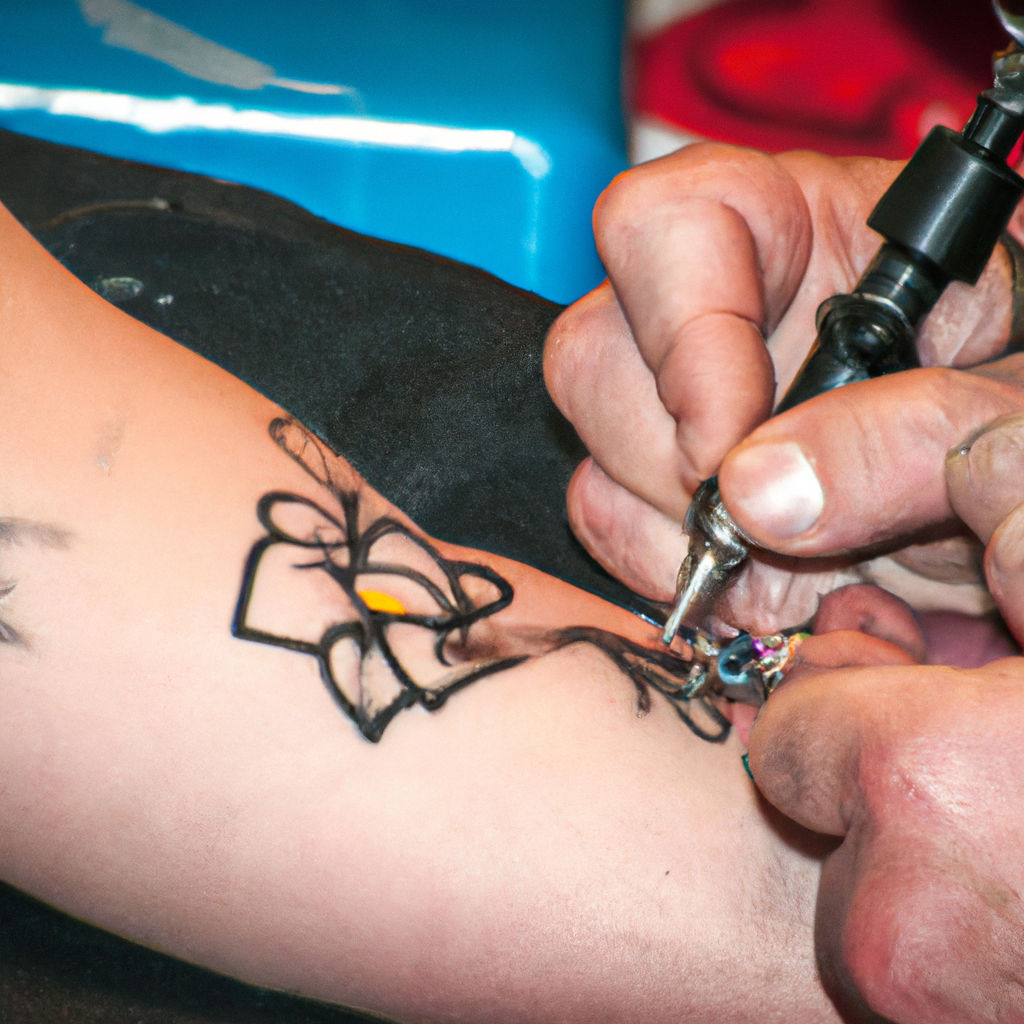
In conclusion, Hebrew tattoos offer a unique blend of deep symbolism, rich history, and beautiful aesthetics for those seeking a more personal connection to their ink. The popularity of these tattoos is on the rise, as individuals worldwide are drawn to the linguistic profundity and spiritual significance of Hebrew language and script.
Hebrew tattoos range from simple yet profound phrases like “אהבה” (Love) and “אמונה” (Faith), through to intricate symbols and numerological designs that connect to the ancient tradition of Gematria. Even more profound are those tattoos that incorporate meaningful verses from sacred Hebrew texts like the Torah, Proverbs, or Psalms.
The beauty of Hebrew calligraphy enhances the visual appeal of these tattoos. Its distinctive and elegant lettering adds style and sophistication, creating a piece of body art that’s as intriguing as it is personal. But it’s not just about aesthetics. These tattoos tell personal stories and bear inspirational messages, often revealing much about the bearers’ identity, beliefs, and experiences.
However, Hebrew tattoos should be chosen with caution, considering the religious and ethical viewpoints of Jewish tradition about body markings. Personal expression needs to be balanced with respect for a language and culture steeped in deep religious significance.
In essence, Hebrew tattoos offer an opportunity for personal growth and inspiration, acting as reminders of one’s life philosophy or spiritual journey. They serve as enduring tokens of faith, love, strength, and resilience in an increasingly complex and chaotic world. For all these reasons, a Hebrew tattoo can make a poignant and powerful statement that transcends the boundaries of skin, touching the very core of one’s being.
Finally, while words and symbols act as the ink that forms these tattoos, it’s the stories they narrate and the emotions they evoke that genuinely marks the skin, and more importantly, the soul.
